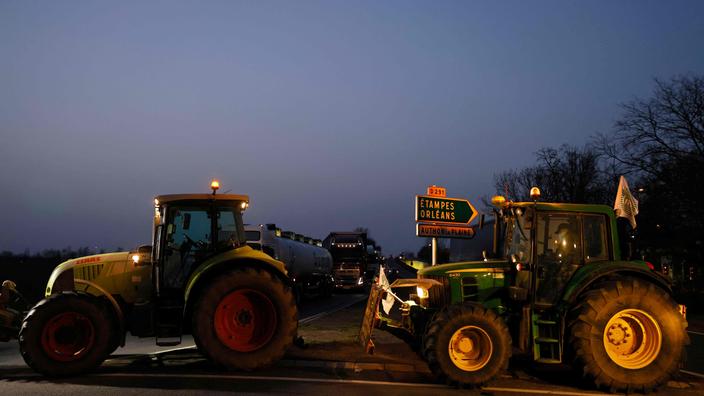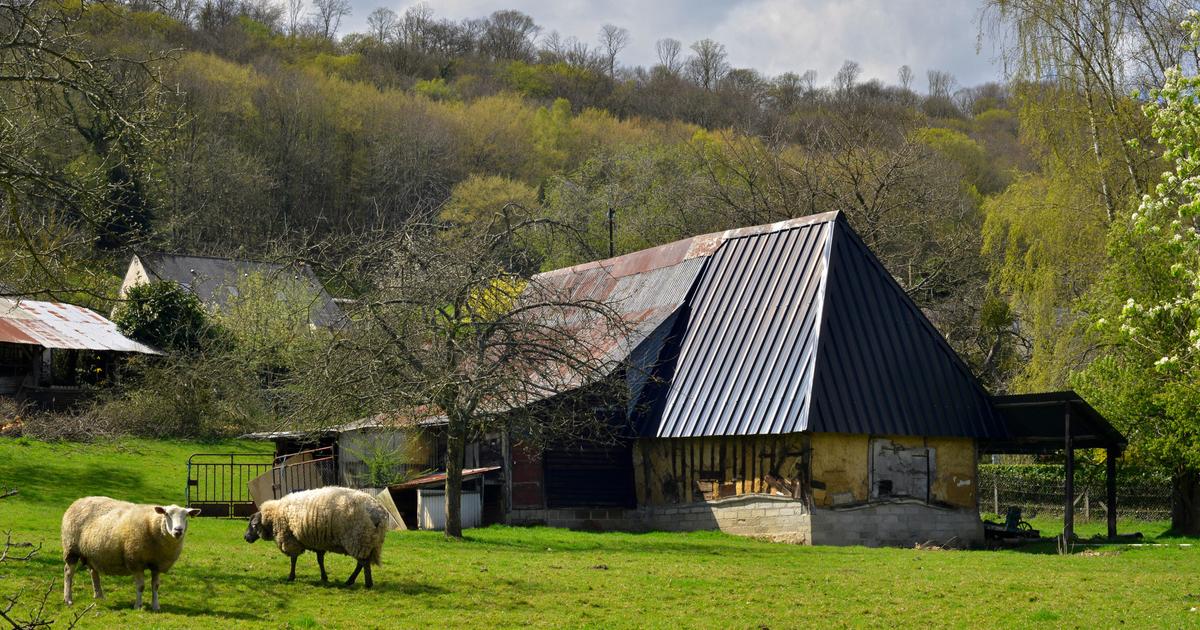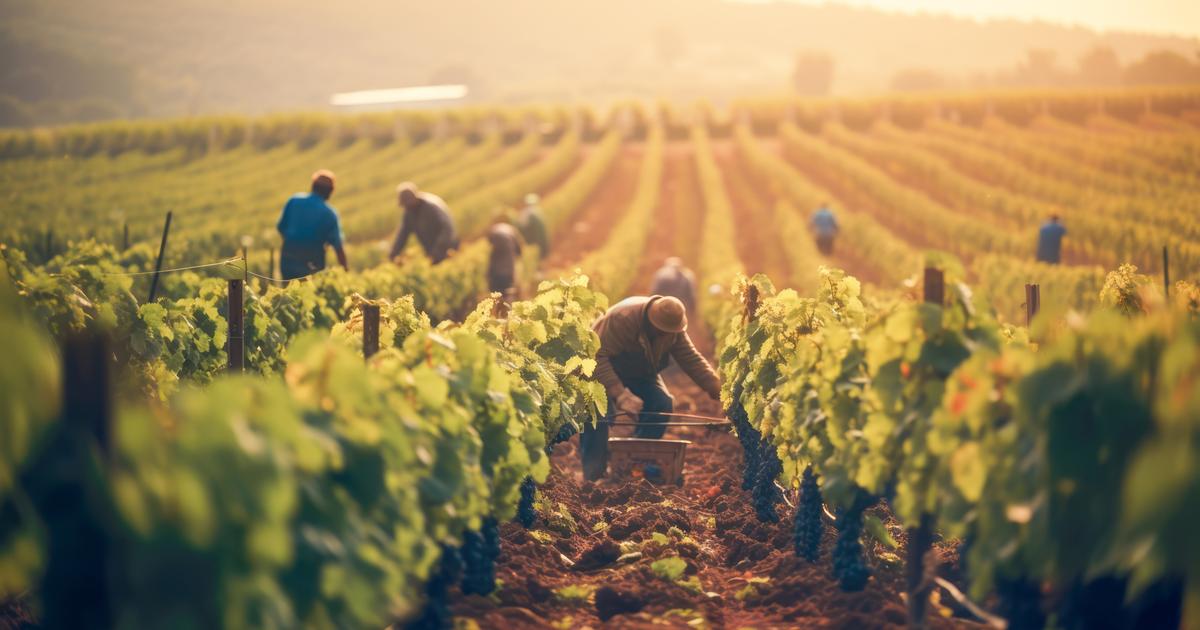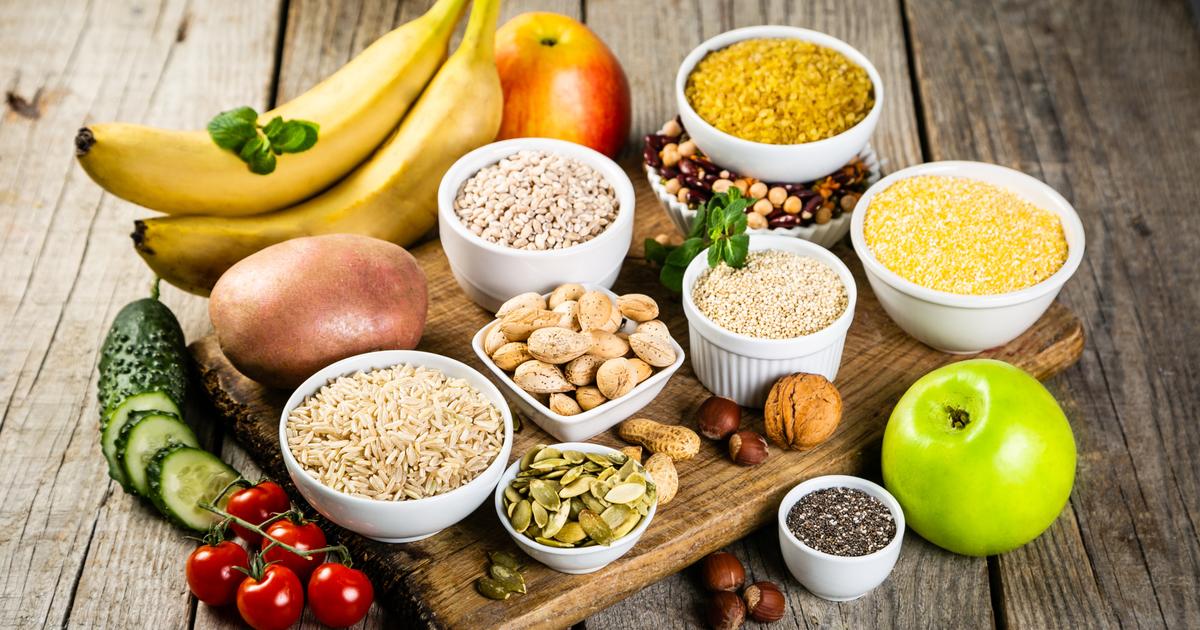"
Warning shot!"
".
After three years of lull in the countryside at the end of the rather successful States General on Food in 2017, tensions returned.
This Friday, at the end of a week of actions in the big metropolises of the Hexagon, and at the call of the majority union FNSEA, hundreds of trucks arrived this morning at dawn on the outskirts of the island of France.
On the program: snail operations and filter dams to protest again against sluggish revenues.
But also to exert pressure while negotiating, behind the scenes, the future subsidies of the CAP, at the national level.
With the crisis, and despite the Egalim law that came into force in 2019 which allowed prices to be raised in certain sectors (milk, pork, etc.), French producers have indeed seen the dynamics of their incomes reverse. month.
With the closing of bars, restaurants and soon canteens again, some sectors have seen between 20 and 60% of their outlets closed.
Not to mention the impact of exports, also seized up.
This had direct consequences on income.
In foie gras and potatoes, production had to be reduced by 15% to avoid surpluses.
So much less income for producers, and worries in economically fragile sectors.
Prices and revenues at half mast
In addition, and if they have not yet been completed, the very tense trade negotiations this year between large-scale distribution and their suppliers have severely limited or even prevented the revaluation of prices on predominantly agricultural products.
This prevented a drop in value in farmyards, the principle at the base of the Food Law (Egalim).
What to stir up anger among producers, even if on the milk sector, the results of the most positive.
"
Since the Egalim law three years ago, the income of breeders has fallen by 30%, the Egalim law is clearly a failure
", supports Bruno Dufayet at the National Bovine Federation (FNB).
Mandated by the government to review the rules of the game of this text, the former boss of System U, Serge Papin, proposed ways to revive the dynamic and remedy the deficiencies of the Egalim law.
In particular by securing agricultural prices in multi-year contracts, in order to better remunerate producers.
The idea is gaining ground in government, but its implementation will take at least months.
The manna of the CAP at stake
A time that Ferme France believes it does not have, given the economic situation in certain sectors.
According to the FNB (National Bovine Federation), the income of French breeders does not exceed 700 euros per month, and 2,000 of them disappear each year.
To stop the bleeding, the countryside knows the time to act and make their voices heard is ideal.
Because after having more or less secured the budget due to it under the Common Agricultural Policy (CAP) in 2020, the French government is in the process of making financial arbitrations, zone by zone and sectors by sector for the next seven years.
The site, titanic and renowned for its complexity, is essential for the future of the French sectors and its 400,000 operators.
France remains the primary beneficiary of the CAP and many farms simply cannot live without the 62.4 billion euros in European subsidies.
This is the case with cattle, dairy and certain cereal farmers.
However, the new orientations of this CAP should change the situation.
First, because they will make more room for environmental criteria.
But also because they will reshuffle the cards of “
coupled
”
aid
(to production) allocated to the sectors and limit direct aid.
With a great novelty: the eco-scheme, which provides that 20% to 30% of so-called first pillar aid (direct aid according to surface area), be conditional on more environmentally friendly practices.
Inter-sector negotiations
The first diagrams unveiled by the Ministry of Agriculture in mid-March did not fail to raise concerns.
According to their calculations, the cattle and cereal sectors would be the least favored.
"
The only way to access eco-schemes if we are to believe the criteria used, would be to reduce production,
deplores Eric Thirouin, the president of the inter-profession of cereals (AGPB)
.
By setting aside 10% of France, for example, or by only doing organic and high environmental value certification.
This is a good thing, but reducing our cultivated areas is contrary to the objective of food sovereignty
”.
The profession fears by this system of losing 60 to 80 euros per hectare per year for most producers in the sector, or 7,000 euros per year for an average cereal farm.
The same goes for meat breeders, who for their part especially fear the redistribution of coupled aid.
Historically very spoiled in this area, they could see them decrease in favor of the protein sectors.
A sector that the government actually wants to push as part of the recovery plan.
“
In our simulations, they would drop from 600 to 360 million per year,
fears Bruno Dufayet, president of the FNB.
This is 8,500 euros less for breeders, on an average income of 8,000 euros.
There is clearly a stake in the survival of the sector
”.
In this context where calculators fly, the next few days will be decisive to safeguard the maximum amount of public support.
The pressure on the roads and in ministerial cabinets should therefore not fall before government arbitrations.
Verdict mid-April.















